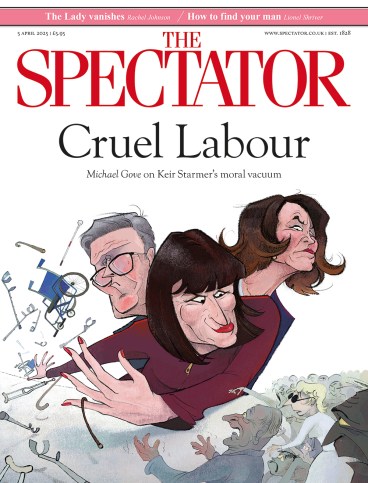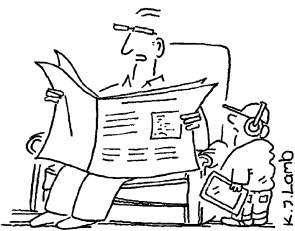
Lionel Shriver has narrated this article for you to listen to.
My late parents perpetually promoted their marriage as the best in the history of the universe. Because this cult of two was hardly subtle, others readily detected what they wanted to hear, so fawning social admiration of what lovebirds they were made them even worse. For us kids, this Trumpesque superlative (how they’d hate that adjective) wasn’t remotely as traumatising as divorce, but still – the romantic hagiography was a bit much. In our adulthoods, our own sad little relationships could never compare, and our parents seemed to feel sorry for us. While big proponents of marriage as an institution, they seemed to regard their children’s marriages as pale imitations – you know, nice try, kids.
An algorithm is the wrong tool for finding someone whose company you can freakishly tolerate
Even if they sometimes wielded their contentment as a cudgel, I’m glad they were happy together. Though I tied the knot late at 46, I’ve followed in their matrimonial footsteps for more than two decades. For me, then, the Wall Street Journal’s lengthy feature last month, ‘American Women Are Giving Up on Marriage’, sounded a sorrowful note.
In the US: in 2022, only a third of single women were looking for love; in defiance of the old commitment-phobe cliché, more than half of single men were on the market. Over half of women aged 18 to 40 are neither married nor cohabitating, a figure that’s risen by 10 per cent this century. In a 2023 poll, nearly half of women didn’t regard marriage as that important for a fulfilling life, compared with 39 per cent of men – rising from 31 per cent and 28 per cent only four years earlier. Last year, only 47 per cent of American households were headed by married couples; in 1949, that figure was 79 per cent.
Rates of marriage have also plummeted in the UK. As of last year, fewer than half of British adults were married. Marriages per 1,000 single British adults have fallen from about 74 in 1972 to 19 in 2022.
What’s happened? Women are finding it difficult to find men they don’t hold in contempt. Many more women than men now have degrees, and women are reluctant to marry down. Men’s and women’s political views have diverged. And women seem less focused on romantic love. In Disney’s infamously woke remake of Snow White, our heroine no longer pines ‘Some Day My Prince Will Come’. The song was cut; her mission is no longer to find a man but to locate her inner strength; and the prince has been demoted to ‘Jonathan’.
Clearly decreasing interest in marriage is multifactorial. But I’d add a couple of factors the Journal didn’t mention.
Dating apps don’t allow for accident. They don’t allow for that old Rolling Stone distinction between getting what you want and getting what you need. An algorithm is the wrong tool for finding someone whose company you can freakishly tolerate. Better to use a Ouija board – or take a proper chance for once and catch a stranger’s eye across a crowded room.
No way would eHarmony ever have set me up with my husband. I didn’t know what I needed. My conscious preferences would have paired me with posturing intellectuals who went to Princeton. I’d never have ticked boxes that landed me with a jazz drummer with no advanced degree. No algorithm would have detected this musician and I have the same dry, absurdist sense of humour. No algorithm could have discerned his acute, intuitive intelligence without a CV to prove it. I don’t think we’re unusual, either. Plenty of solid, longstanding marriages would never have looked plausible on paper. This whole checklist mentality should be consigned to the supermarket.
Moreover, maybe women are too picky. We’re not always such great shakes ourselves. Women’s widespread insistence on tallness is as unfair and shallow as men’s insistence women be size zero when they themselves are five stone overweight. What’s wrong with people is often endearing. I’m no paragon, and I’d hate to be married to one.
The epigraph to my eighth novel The Post-Birthday World runs: ‘Nobody’s perfect. – Known Fact.’ It’s a parallel universe book in which the protagonist lives a slightly different life depending on which man she chooses. Readers often try to decide with which chap she’s better off. But in truth, both the exciting snooker player and the reliable, decent thinktank wonk are credible objects of her affection, each of whom redeems himself or disappoints depending on the day. The novel opposes the concept of courtly love: that there’s one ideal mate out there earmarked for you, and good luck finding your needle in a haystack. No, no! Just make hay while the sun shines with somebody! Optimally with a guy who doesn’t mind farmyard clichés.
Plummeting marriage rates must be related to dropping fertility rates. Both statistics represent the subversion of family that my generation instigated. Maybe the decay has advanced far enough. Although when younger I fought both the idea of family and my actual family, I benefited from being raised by parents with a happy marriage – even one too happy, if there’s such a thing. Should we be talking up formalised monogamy more?

See, I like being married. I like the clarity; one side of my life is resolved. I like going away alone and coming home to company. I like solitude while my husband goes away, and I like it when he comes back. I like spending all day ignoring him, and I like getting reacquainted when I finally notice there’s someone else in the house. If one of us ever leaves the other, it will be in a box. We are extremely different. Had I been born to a generation that shops for men online like socks, I’d surely have searched for someone just like me – which would have been a disaster.
Mind, my husband drives me insane. I announce with regularity: ‘I have no idea why I married you.’ Fortunately, I drive him insane right back. Sometimes we do effuse about having the best marriage in the history of the universe – but in private, and it’s a joke.









Comments